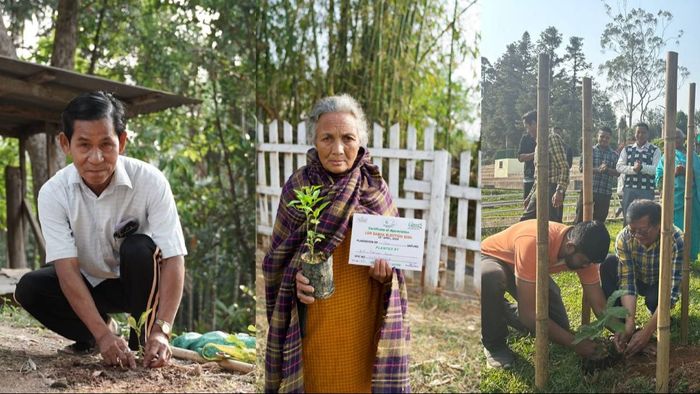Meghalaya Lok Sabha Elections: 8000 saplings planted in a bid to promote ethical and clean polls
In an initiative to promote ethical and clean elections, 8000 saplings were planted across 3512 polling stations in Meghalaya during the Lok Sabha general elections. The initiative, beyond a mere formality, symbolized the longevity of the Lok Sabha general elections.

- Apr 22, 2024,
- Updated Apr 22, 2024, 7:39 PM IST
8000 saplings were distributed across 3512 polling stations in a bid to promote a clean and an ethical electoral process during the Lok Sabha general elections held in Meghalaya on April 19. The responsibility of planting the saplings was distributed among the first two male and female voters in every constituency.
Speaking to India Today NE, Chief Electoral Officer of Meghalaya, BDR Tiwari informed that the cleaning and plantation drive was commenced at Mawlynnong, Asia’s cleanest village.
Tiwari underscored important points behind the implementation of the initiative. He stated, “The Election Commission in Meghalaya had issued a circular emphasizing the necessity for the entire electoral process to be clean and green. The motive was to ensure that the areas witnessing this crucial democratic engagement remained plastic-free and pollution-free, thus conveying a message of cleanliness and greenery.”
“Secondly, the months of March and April are characterised by favourable climatic conditions, accompanied by abundant rainfall in the state, which facilitates good plantation," he further added.
The CEO also cited a significant reason as personal, maintaining that planting more saplings should be a priority. He also shared information about community traditions and practices of plantation and care of the environment. He said, "The sacred groves, community conservation reserves, cleaning drives, and plantation drives are age-old practices of local tribal communities - the Khasis, the Garos, the Jaintias, and a number of other minor tribes and local communities. Meghalaya is the first and only state to receive green credits in our country."
Tiwari informed that the initiative was not just a mere formality of giving certificates to voters, but rather a significant development aimed at ensuring the longevity of the plants, thus becoming a symbol of the Lok Sabha general elections. He stated, “Most polling stations are located either in schools or community halls, making it imperative for us to ensure the presence of greenery. For these initiatives, we devised proper and planned strategies in a state-level meeting with officials from the forest and education departments. It was decided in the meeting that the forest department would contribute larger plants on a large scale, while the education department would handle the ploughing of the fields. Additionally, the Election Commission provided greenhouse nets, local bamboo for building the foundation, and construction nails.”
The locals who helped in executing the whole process were each given a certificate, while the school authorities seized the opportunity to maintain the plants. He also informed that in the plains of the country, conducting a plantation drive is not possible due to unfavorable weather conditions.
“We aimed to spread a message promoting greenery and cleanliness in order to ensure that the initiative strengthens the roots of democracy and does our bit to protect future generations from global warming and climate change. We also aimed to promote the message of ethical, free, and fair elections,” Tiwari further stated.